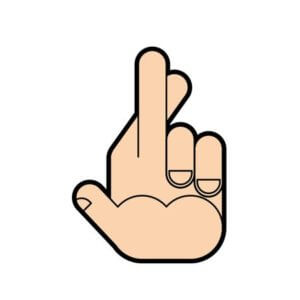 What do all success stories have in common? Action. Success is the result of action.
What do all success stories have in common? Action. Success is the result of action.
What sustains and maintains that success? Repeated, reliable sustained action.
You can’t succeed by doing nothing. You must recognize the importance of being intentional, or having good intentions. But that isn’t enough. The often overlooked step is making it tangible. This intention can’t merely be in your head or scribbled on a scrap of paper that you’ll lose in your car. You must have a system you trust. (paraphrased from Stephen Guise’s blog The Minimum Requirement for Success)
Tracking Progress? Or Losing Track?
One of the hardest things many of us struggle with is not backsliding after getting a grip on a habit we want to establish. I have health habits I work on (drink eight glasses of water each day, exercise thirty minutes each day, no screen time after 8 p.m. so I can sleep, sugar-free day), writing habits (write 25 minutes and rest 5 minutes, don’t check email before 10 a.m.) and spiritual (devotional and prayer first thing). The trouble is, once I establish a habit well and then move on to work on another habit, I tend to forget (and backslide) on the progress I’d worked hard to establish.
There’s too much to remember! And yet, most health and writing habits are only valuable if you are consistent, if you do them daily or almost daily. I’ve blogged about mini habits in the past, and I’ve run several 30-day mini habit challenges which were very successful. Mini habits are much more reliable than motivation to help you meet your goals. I’m still a firm believer concerning mini habits, but I have been unable to find an easy and reliable way to track both earlier habits and new ones I’m working on.
Until now.
The Best Way I’ve Found to Track Habits
I have tried various ways to track daily habits: wall calendars with check marks, notebooks with a list of daily habits, an erasable board on my office wall. They all had their benefits. I could see the wall calendar and erasable board whenever I sat down to work in my office, so it reminded me then. The notebook idea meant I could take my reminders on the road, thus keeping up with my habits on trips (which is a real challenge.) But nothing worked for all situations.
Then I read Stephen Guise’s idea about habit tracking on a smart phone with a free app called the Habit Loop tracker. It took me an hour to set it all up, but I have used it faithfully for weeks now. It’s fun. It’s colorful. And it’s the only thing visible on my smartphone’s home screen. (In other words, it’s not just a productivity app that is lost among two dozen other apps.) It goes with me everywhere. I don’t have to be online to track a habit. It keeps track of all the statistics for me. It allows me to set reminders, if I want to. And did I mention that it’s FREE?
For a simple tutorial in setting it up, read The New Best Way to Track Mini Habits by Stephen Guise. He takes you step-by-step through the process of setting it up, including screen shots of how he did it. My home screen looks different than his though. I only have the Habit widget and my ten mini habits on the home screen.
Good Intentions Versus Intentions That Work
 Good intentions, for our writing or anything else, only work if we have a way to hold ourselves accountable. If you’re still hunting for a system to keep building reliable habits, I hope you’ll try this Habit Loop idea.
Good intentions, for our writing or anything else, only work if we have a way to hold ourselves accountable. If you’re still hunting for a system to keep building reliable habits, I hope you’ll try this Habit Loop idea.
If you do, let me know how it works for you!